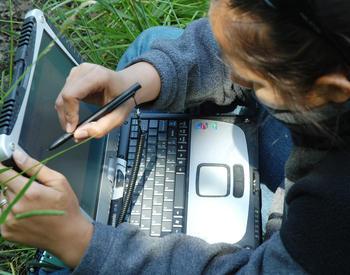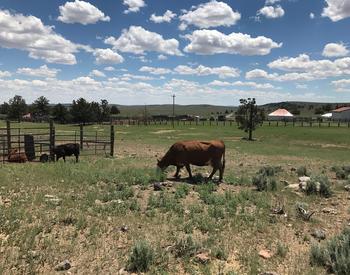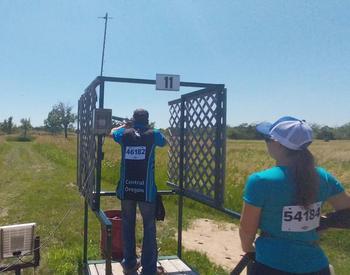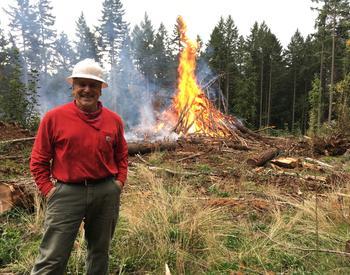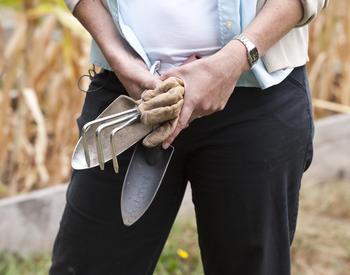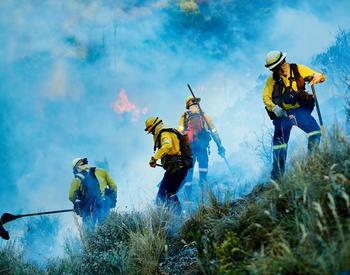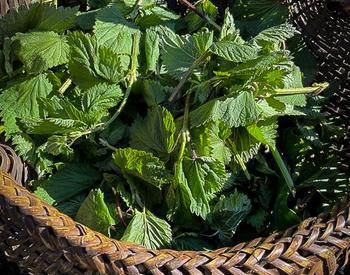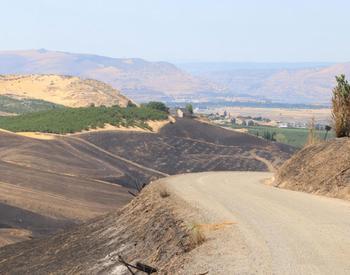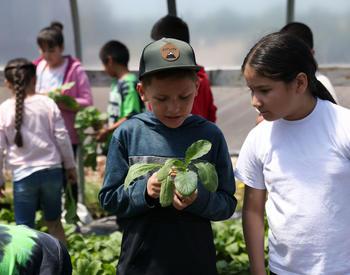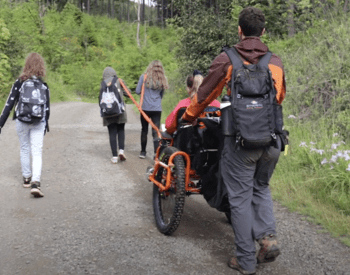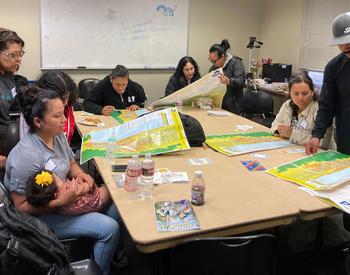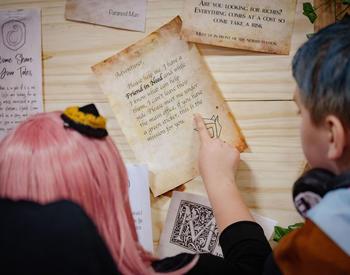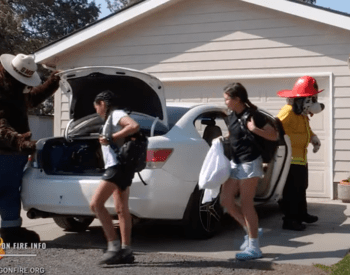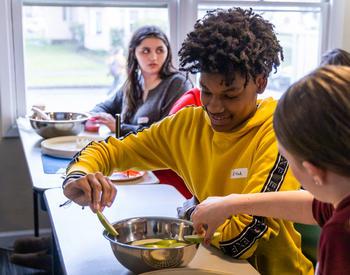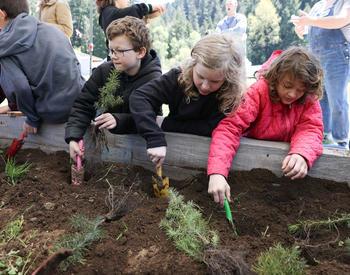CORVALLIS, Ore. – Across the field comes a pack of kids, grabbing food and water and trying to make it to a safe house before the zombies catch and devour them.
Even though they aren’t real zombies, the teens – about 400 4-H members so far – get into the excitement and play along with the game designed by Lynette Black to teach basic emergency preparedness with a twist.
“Zombies are in the culture right now,” said Black, an Oregon State University Extension Service 4-H Youth Development coordinator. “It’s a good way to catch the kids’ attention and teach them the importance of preparedness. If I call it ‘surviving natural disasters,’ they just don’t come. If they think they can survive a zombie apocalypse, they’re into it.”
In the wake of summer storms, wildfires and predicted earthquakes in the Pacific Northwest, being prepared for an emergency is something everyone should be doing, she said. While engaged in the zombie activity kids learn how to survive by stocking up on essentials and relying on their wits to keep them safe and in good shape until help comes.
“It’s all about critical thinking,” said Black, who leads the game during the annual 4-H Summer Conference on the OSU campus. “If this happens, what do I do? And at the next level, they have to think about survival as a family.”
The activity, she notes, is a glorified tag game. In addition to avoiding zombies, the humans must pick up colored balls that stand in for food, water and first aid before heading to the safe houses, designated with hula hoops. If playing an injured person, the child is required to limp or hold an arm in an awkward position. Bandages cover fake head wounds. If tagged, you become a zombie.
The kids love it – even when they lose. “There’s a very positive response,” Black said. “They hadn’t thought of emergency preparedness before. This is a fun way to get them to learn.”
Many of them get motivated enough to go home and urge their parents to get on board. One 4-H member has become a preparedness guru. His mom told Black that he came home from playing the game and put together a survival kit. Then on a trip to Alaska he heard about off-the-grid electrical devices, which inspired him to build a metal unit that turns fire into gas for cars and to heat homes.
“He built it by himself,” she said. “The zombie game was the spark. It really works.”
After giving presentations on the activity at conferences, several states have added it to their 4-H curriculum, said Black, who’s worked in the emergency field for 10 years.
The game provides a springboard for giving kids more information for survival beyond food, water and first aid. Raising livestock and growing food – which many 4-H members are already versed in – is one way. Combined with that is cooking and food safety.
“Leadership, responsibility and communication skills are important, too,” Black said. “Humans must be confident enough to be competent leaders to help others to get away from the zombies. Just like in a real emergency.”
BASICS FOR EMERGENCY PREPAREDNESS
(More information in OSU Extension’s Family Emergency Preparedness Kit guide.)
At home:
- Food for one week (It’s comforting to eat familiar foods so stash what your family likes. Refresh supply every year.)
- Water for two weeks; 1 gallon per person per day (Cycle through by using the containers in back for gardening or camping every six months. If you don’t have room for gallon-size jugs, look for 7-gallon versions at outdoor stores or online.)
- First aid kit
- Flashlight
- Batteries
- Crank or solar radios
- Face mask
- Barbecue, grill or camp stove (Don’t bring inside.)
- Tent
- Old pair of shoes under the bed in case an emergency happens at night
- Prescription medications for two weeks (Talk to your doctor or insurance company for permission to order additional prescriptions.)
- Diapers
- Baby wipes
- Pet food
In the car:
- Good walking shoes, coat, gloves and hat
- First aid kit
- Flashlight or head lamp
- Pencil and paper for leaving notes for emergency crews if cell phones don’t work
- Whistle
- Coat
- Backpack
- Food
- Water
